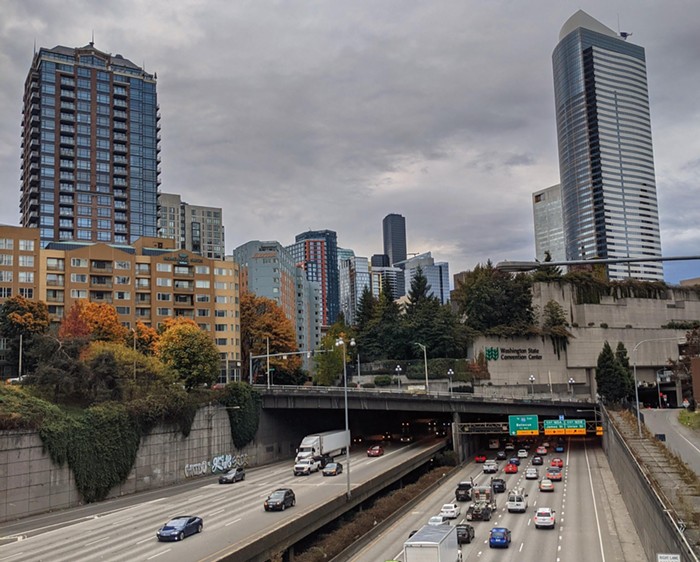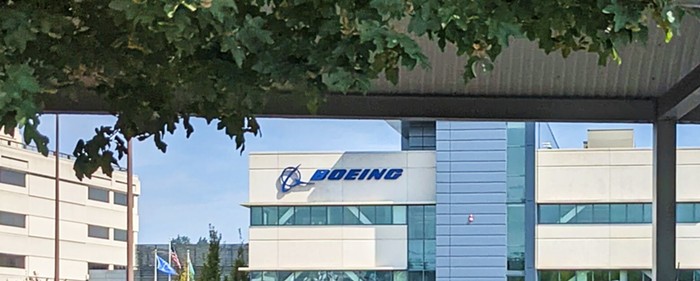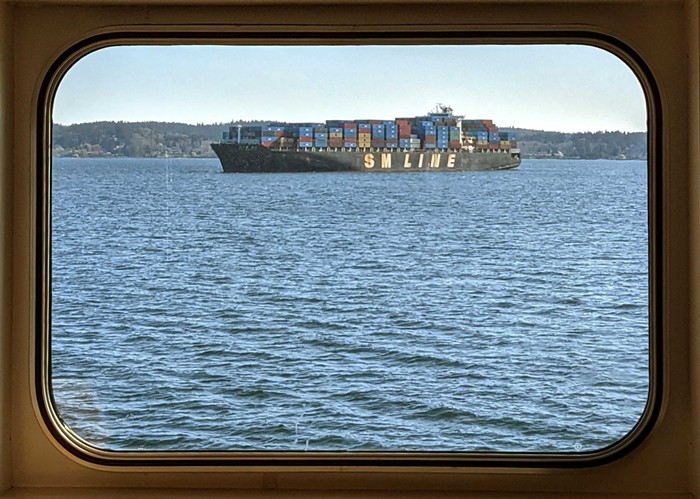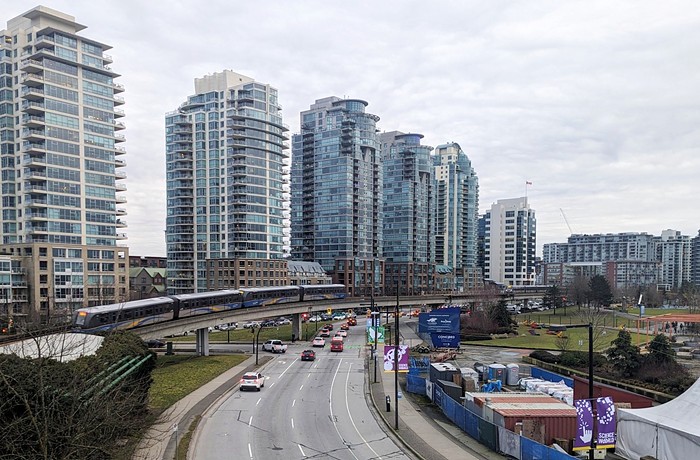
Everett is now on its way to possessing the largest abandoned building in the world, the Boeing Everett Factory. The corporation's decision to leave the northernmost city in Seattle's metropolitan area and concentrate production in South Carolina was inevitable. No haruspication (cutting open the belly of an animal to find signs from the future) was needed to make this prediction. The transition from the unionized labor in the Pacific Northwest to a business climate that's far less hostile to suppression of union activism has been slow but sure.
Slow because the production of planes involves locking a galaxy of capital in the instruments and location of production. (The Everett factory was completed a little over 50 years ago.) Also slow because the accumulation and stabilization of what the economist Ha-Joon Chang calls the "institutional memory" of a capital-intensive enterprise has a temporal scale (long term) that corresponds with its extensive (or spatial) one.
And sure because Boeing, like any other firm, has as its sole goal the growth of profits.
What you will not find in this world, and maybe not even in the next one, is a market-directed enterprise that is free of class conflict. What workers can't avoid doing is reducing the income of the owners, i.e. profits. This is their crime: they do not work for nothing. Layoffs are permitted in our society because those in power have legally coded this crime of crimes as undeserving of any meaningful rights and protections. The absoluten recht is unimpeded capital accumulation. As a consequence, scrying is not in any way needed to see how Seattle's mainstream press will soon fix blame for this tight situation on the excesses and unreasonableness of progressive politics.
Boeing got a $8.7 billion subsidy from Washington state taxpayers, the biggest corporate subsidy in US history
Since then it cut 17,000 jobs in Washington
Now it's moving up to 30,000 WA employees to South Carolina because SC has fewer worker protectionshttps://t.co/MOWpve6oWI
— Dan Price (@DanPriceSeattle) September 30, 2020
But this state did everything Boeing wanted, one side will say. But the side that is heard, or whose message is easily amplified in our society, will say the state did not do enough. But if we look back in time, which is better than tasseography (looking for the future in tea leaves or coffee grinds that remain at the bottom cup) for seeing and interpreting events that have not happened, we find at every point in the history of capitalist production (near or far) the presence of the pressure to cut costs. Even during capital's glory years in the US (1947 to 1972), a period of high profits coupled with high wages, the pressure did not relent, as the Thomas J. Sugrue shows in his book, The Origins of the Urban Crisis: Race and Inequality in Postwar Detroit. (Expect my post on Detroit to appear on Slog next week.)
What does our governor Jay Inslee have to say about all of this?
We have asked the Boeing Company multiple times what it needs to keep 787 production in Washington. We’ve heard nothing back. Nor have we heard anything about how to restart this work when conditions improve. This move would signal an allegiance to short-term profits and Wall Street - not quality, safety and a vision for the future of the industry.
Washington state remains the best place in the world to make airplanes. The Boeing Company still has a large presence here, amidst an innovative aerospace sector that includes some of the best workers anywhere and hundreds of businesses that are part of a high-quality supply chain.
So, there you have it. There is a difference between Boeing and an "innovative aerospace sector." I want to recommend that we ignore all of the expected noise about how unfriendly Seattle is to business and make an important step forward by way of this clarity: Boeing and institutional memory are not one and the same thing. (One might call institutional memory human capital, but I hate that kind of Chicago School language like nobody's business.)

Maya Angelou, the poet who talked me into becoming a writer in 1991, directed her one and only film in 1998, Down in the Delta. She died in 2014. Her film was about a young, Chicago mom (Alfre Woodard), who is pulled from the edge of a crackhead existence by her church-proud mother (Mary Alice) and is sent, with her children, to a sleepy town in Mississippi. City mom's uncle has a big house and a small business in this part of Mississippi. The uncle puts the citified mom to work in his business, a restaurant called Just Chicken, whose customers work at a factory that processes chicken. We soon learn the factory is threatening to close and leave to a place where chickens can be processed with lower labor costs. (You feeling me yet?)
Finally, the factory announces what it was always planning to do, and the town is plunged into despair, "Taking the food off the table—over 200 families—just to save some money," says Uncle Earl to the urban mom as they walk across a graveyard. The street mom recommends that the workers picket the factory and demand the return of their jobs. But that's not going to happen. The town is on course to experience an increase in poverty as the factory (productive capacity) goes unused.
In steps Uncle Earl's son (Wesley Snipes), who is a lawyer with a practice and a young family in Atlanta. Inspired by the citified mother's call for resistance ("let's do something, people"), he gathers some town folk in Just Chicken and says this to them: "Do you love this town? Do you want to save this town? There is a way you can do it, if you got vision."
At the latest point in the long struggle between labor and capital, begging Boeing to stay in Washington is not what you call "visionary." It will not work. We are now in a crisis that calls for new and broader seeing/thinking. Down in the Delta is not a good film, but Maya Angelou clearly has something to say to the Seattle area.



















